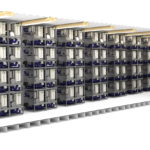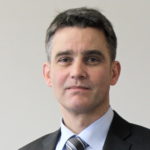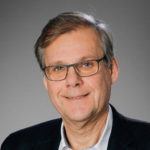A new project for maritime fuel cell drives gets under way. The Siemens Group is cooperating with PowerCell from Sweden. By Michael Meyer
Right before the SMM a letter of intent was signed in Hamburg. The former spin-off of the Swedish Volvo[ds_preview] Group – today an independent company listed at the Stockholm stock exchange with three anchor shareholders, including the Swedish government – and the German Group want to cooperate to promote the integration of fuel cells in shipping. The collaboration aims to develop energy supply systems for ships based on fuel cells. As a rough time schedule for a suitable cooperation model and a possible drive solution, the year 2020 was mentioned. Possible joint projects could be systems for ferries, yachts, cruise and research vessels, the partners announced. Even the short sea market could be interesting.
With SISHIP BlueDrive, Siemens is supplying an integrated energy and drive system while PowerCell will install its fuel cell modules with this solution. A Finnish research vessel already has a fuel cell component on board – not for propulsion, but for operation during complex and sensitive measuring work.
PowerCell Sweden AB develops and produces fuel cell stacks and systems for stationary and mobile applications. So far, the Swedes have been active in the real estate and automotive segments, among others. The fuel cells are powered by hydrogen, pure or reformed, and produce electricity and heat with no emissions other than water.
SISHIP BlueDrive is based on an integrated power distribution, where the main switchboard and all drives are combined in one compact unit. A flexible connection can be used to link different units. Battery storage systems implemented on ferries pioneered in this context in recent years. Siemens attracted attention in this market with ships operated by shipping company Scandlines and with Norwegian ferry »Ampere«.
»The next step is now the extension of the concept to the fuel cell,« the prospective partners said. »Our product is based on a direct current (DC) concept. After previous projects with batteries, it is now the next logical step to integrate fuel cells, which also provide DC,« says Matthias Schulze, Executive Vice President of Marine at Siemens. The company is already working on submarines with such technologies, now they have sought for a partner for marine surface applications. »Precisely because the PowerCell systems are so compact, we think we have found a good partner,« Schulze continues.
The previous PowerCell products had an output of 1 to 100 kW in three classes. »By coupling several plants we can reach up to 1 MW. A modular system that bundles many plants into a 40-foot container so that 2 to 6 MW could be achieved is also an option,« says PowerCell Vice President and CTO Per Ekdunge. In this respect, deep-sea shipping applications become conceivable. The »power density« or the ratio of size to power could be four times as high as in other applications, even with the necessary hydrogen tank included.
The classification society DNV GL is in talks about a technical certification. »At the political level, however, there is still a lack of appropriate regulation,« adds Business Manager Johan Burgren. The parties involved are convinced that fuel cells are characterized by high efficiency and are free of pollutant emissions during operation.
»In large segments of the marine industry a rapid transition has already started, with increased electrification and decreased use of fossil fuels as strong trends«, Per Wassén, CEO of PowerCell, said in a company statement. »If commercial shipping is to meet the IMO target, and seriously take on the challenge that the climate change poses, large sections of it have to convert to much more sustainable solutions. Fuel cells are a very promising alternative and Siemens and PowerCell see a great potential for the cooperation we are now entering into.«
However, mass production has not yet started at the company founded in 2008. This is the subject of other collaborations, among others with the car manufacturers BMW, Daimler, Ford and VW.
Michael Meyer





















